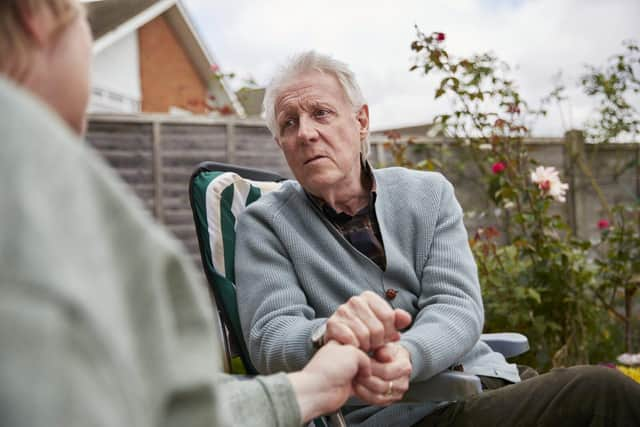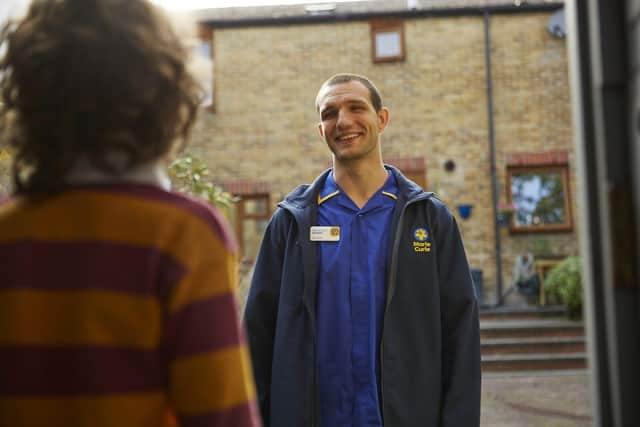Charities join together to improve end of life care for people living long-term with HIV in Brighton
and live on Freeview channel 276
Focusing on Brighton and Hove residents initially, the work aims to understand the potential barriers and experiences of people living long-term with HIV to planning for and receiving palliative and end of life care.
The project is not only for those diagnosed with HIV in the 1980s and 90s but for anyone living with HIV in the area wanting to explore end of life planning and care.
Advertisement
Hide AdAdvertisement
Hide AdIn 2024, more than 50% of people living with HIV in Brighton & Hove are over 50, a percentage which increases each year.


Ten staff from Marie Curie and Terrence Higgins Trust will be trained in facilitating ‘No Barriers Here’ workshops. The No Barriers Here approach takes conversations about palliative and end of life care out of a medicalised environment and into a creative space to make healthcare more accessible to this historically marginalised group.
In the beginning there will three sets of community workshops delivered in the Southeast with the long-term plan for these to be scaled up and delivered across the country, with results helping inform Marie Curie’s future resources and services.
Marie Curie Community Engagement & Development Manager for the Southeast, Louisa Dreja, said: “Many people diagnosed with HIV in the 1980s and 90s experienced severe discrimination and poor access to care, meaning they often have valid concerns when it comes to planning and accessing end of life services.
Advertisement
Hide AdAdvertisement
Hide Ad“We’re undertaking this research to understand the unique lived experiences of those living long-term with HIV and work with them to think about how Marie Curie can best support these people at their end of life.”


Gay and bisexual men have been disproportionately affected by HIV since the start of the epidemic and this continues today.
Marie Curie knows that the LGBTQ+ community experience specific challenges with accessing end of life care which can range from negative experiences in healthcare settings, to a higher risk of complex or disenfranchised grief, and additional pressures on carers of LGBTQ+ people.
Currently, there is very little research looking at the specific experiences of people who were diagnosed with HIV in the 1980s and 90s before effective treatment was available, and who are now part of an older population more likely to be diagnosed with a terminal illness.
Advertisement
Hide AdAdvertisement
Hide AdLouisa adds: “We’re thrilled to be launching this new research project in partnership with leading HIV and sexual health charity Terrence Higgins Trust.”
Service Manager at Terrence Higgins Trust in Brighton, Marc Tweed, said: “At the height of the AIDS pandemic in the 1980s, support and planning for end of life was front of mind but with the introduction of effective treatment, we now must ask ourselves if we have forgotten how to help people living with HIV with their end of life planning and care?
“We hope that this innovative research will create a safe space for people to explore their thoughts and feelings about dying and their end of life care and in return provide us with a current picture of what matters to and concerns people living with HIV in regards to their end of life. This in turn will help inform our strategic work to be there until the last person with HIV needs us.”
To get involved in the study or for more information contact [email protected]